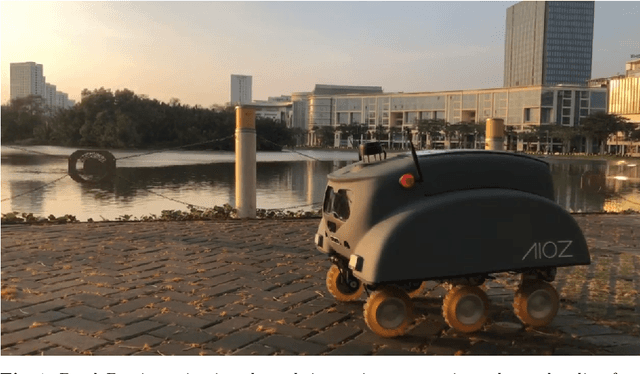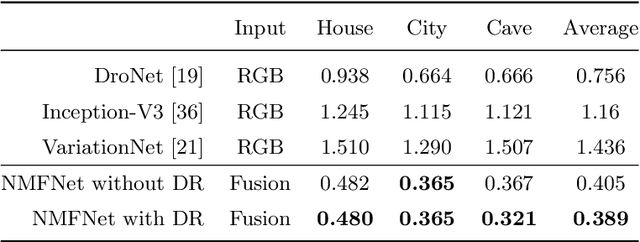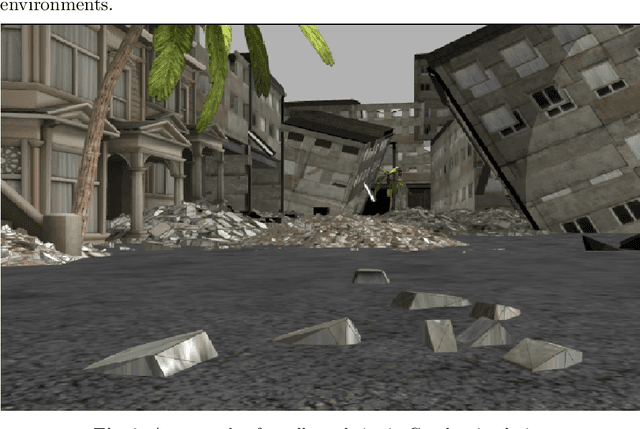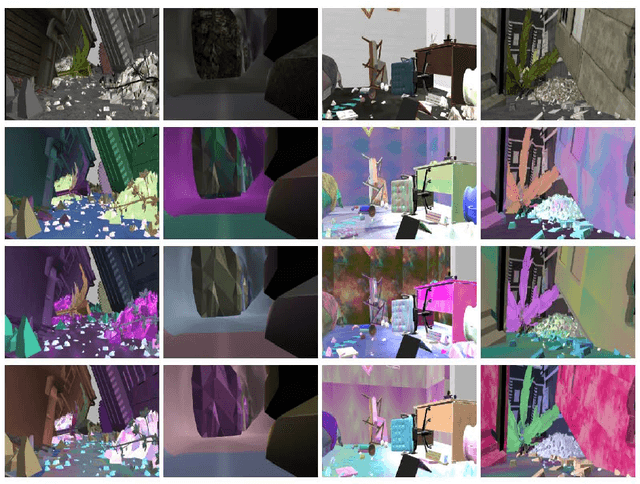Autonomous Navigation with Mobile Robots using Deep Learning and the Robot Operating System
Paper and Code
Dec 07, 2020



Autonomous navigation is a long-standing field of robotics research, which provides an essential capability for mobile robots to execute a series of tasks on the same environments performed by human everyday. In this chapter, we present a set of algorithms to train and deploy deep networks for autonomous navigation of mobile robots using the Robot Operation System (ROS). We describe three main steps to tackle this problem: i) collecting data in simulation environments using ROS and Gazebo; ii) designing deep network for autonomous navigation, and iii) deploying the learned policy on mobile robots in both simulation and real-world. Theoretically, we present deep learning architectures for robust navigation in normal environments (e.g., man-made houses, roads) and complex environments (e.g., collapsed cities, or natural caves). We further show that the use of visual modalities such as RGB, Lidar, and point cloud is essential to improve the autonomy of mobile robots. Our project website and demonstration video can be found at https://sites.google.com/site/autonomousnavigationros.
 Add to Chrome
Add to Chrome Add to Firefox
Add to Firefox Add to Edge
Add to Edge